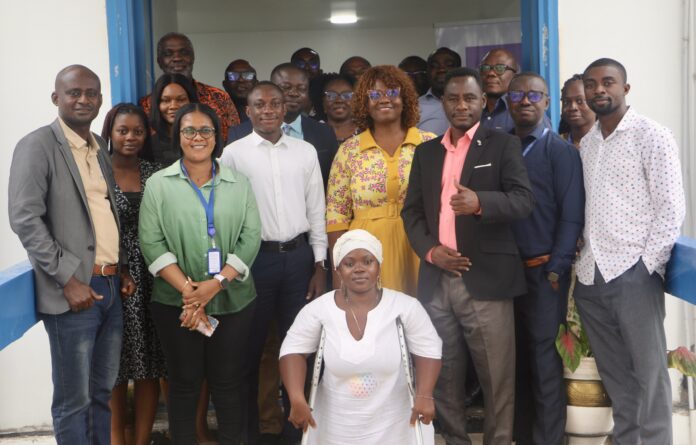The Government of Ghana, in collaboration with the United Nations Development Programme (UNDP), has taken a major step toward securing sustainable financing for biodiversity conservation by strengthening the role of civil society in national biodiversity planning processes.
At a recent workshop held in Accra, key stakeholders from civil society organizations (CSOs), environmental experts, and policymakers gathered for a deep dive into Ghana’s Biodiversity Finance Initiative (BIOFIN). The event, organized under the Global Environment Facility (GEF)-funded Umbrella Programme for the Development of Biodiversity Finance Plans, focused on integrating civil society perspectives into Ghana’s first Biodiversity Finance Plan.
Ghana’s natural ecosystems—its forests, rivers, and wildlife—are vital to the country’s economic development and the well-being of millions. Yet these ecosystems face increasing pressure from deforestation, pollution, and unsustainable land use. To address these challenges, the workshop aimed to build a common understanding of the BIOFIN approach and define stakeholder roles in developing financing strategies for conservation.
“Civil society is the heartbeat of Ghana’s biodiversity movement—from advocating for community rights to leading conservation efforts on the ground,” said Ayirebi Frimpong, UNDP Ghana Programme Specialist for Forests. “This workshop is about strengthening that leadership so that financing for nature reflects our shared priorities and realities.”
Participants engaged in technical sessions on BIOFIN’s core components, including the Policy and Institutional Review (PIR), Biodiversity Expenditure Review (BER), Financial Needs Assessment (FNA), and the development of the Biodiversity Finance Plan (BFP). These discussions aimed to deepen understanding of the analytical tools used to assess financing gaps and explore innovative funding solutions.
Reginald Asare, Project Lead and Sustainable Finance Specialist at UNDP Ghana, emphasized that mobilizing resources is less about political will and more about coordination.
“The challenge is not a lack of commitment but a lack of coordinated financing,” he stated. “The Biodiversity Finance Plan provides a framework to mobilize and direct resources efficiently to protect Ghana’s natural heritage and support sustainable development.”
A key highlight of the workshop was a breakout session that encouraged participants to evaluate existing subsidies and incentive mechanisms in sectors such as agriculture, forestry, and energy. The discussions focused on identifying policies harmful to biodiversity and exploring ways to restructure them in support of conservation goals.
Pamela Quaye, Environmental Policy Specialist, noted the critical role CSOs play in designing inclusive and impactful biodiversity finance solutions. “Their insights help ensure that the solutions we design are both community-driven and sustainable,” she said.
UNDP Biodiversity Finance Specialist Yaw Oteng led a session on the Biodiversity Expenditure Review phase, which will analyze past and present financial flows from both public and private sectors. He highlighted the challenges in collecting consistent private sector data and emphasized the essential role of civil society as a “third national force” in providing insights and facilitating access to private sector data.
Participants praised the workshop for fostering inclusive dialogue and enhancing collaboration among government, civil society, and development partners. They agreed that strong civil society participation is essential for ensuring public accountability, policy coherence, and measurable conservation outcomes.
The insights and recommendations gathered will inform Ghana’s ongoing work under the BIOFIN programme, including the upcoming Biodiversity Expenditure Review and the development of a national Biodiversity Finance Plan aligned with the Kunming-Montreal Global Biodiversity Framework and Ghana’s National Biodiversity Strategy and Action Plan (NBSAP).
Through the BIOFIN initiative, UNDP continues to support Ghana and other partner countries in unlocking innovative financing mechanisms to protect biodiversity, drive nature-positive investments, and advance the Sustainable Development Goals (SDGs).



